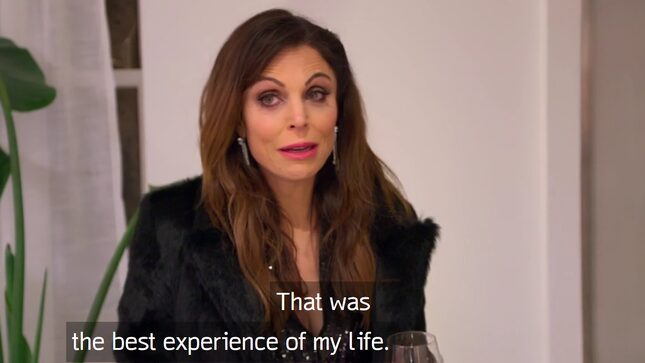I’m Not Buying What The Big Shot With Bethenny Frankel Was Selling
The premise of this girlboss-ified reboot of The Apprentice was supposed to be simple.
EntertainmentTV

Before the debut of HBO Max’s The Big Shot, which offered contestants a chance to be Vice President of Operations for the lucrative Skinnygirl brand and more, Bethenny Frankel exclaimed to Us Weekly: “This is the biggest show with the biggest budget, with the biggest partners and the greatest streamer, so stakes are very high, but it’s too good a show. It’s too big to fail.”
Now that it’s over, looking on at the wreckage in front of us, of course The Big Shot was going to fail. It was propelled along by a puzzling series of dramatic and downright abusive outbursts from Frankel, and her own rampant ego, towards her contestants. Throughout the competition, she manipulated her employees and the contestants, and at times, weaponized women of color’s inclusion in the competition to whitewash her history of terrible behavior on television and on social media.
The premise of this girlboss-ified reboot of The Apprentice was supposed to be simple: Bethenny Frankel would put contestants through a series of business and design challenges to find a good fit as her Vice President of Operations for the nebulous web of branded ventures she owns, like charity organization BStrong or food conglomerate Skinnygirl. But rather than follow in the footsteps of her predecessor Donald Trump, Frankel ditched any traditional competition show format. “Challenges” were suggestions, at best, during which Frankel would repeatedly change the rules or bring back already dismissed candidates. She would tell staff and producers that this was her “real life,” and that she was looking for someone “authentic” to fill the role.
As was obvious after the premiere, Frankel wanted someone who wouldn’t question her tyrannical approach to business or many, many, many emotional outbursts.
-

-

-

-

-

-

-

-

-

-

-

-

-

-

-

-

-

-

-

-

-

-

-

-

-

-

-

-

-

-

-

-

-

-

-

-

-

-

-

-








































